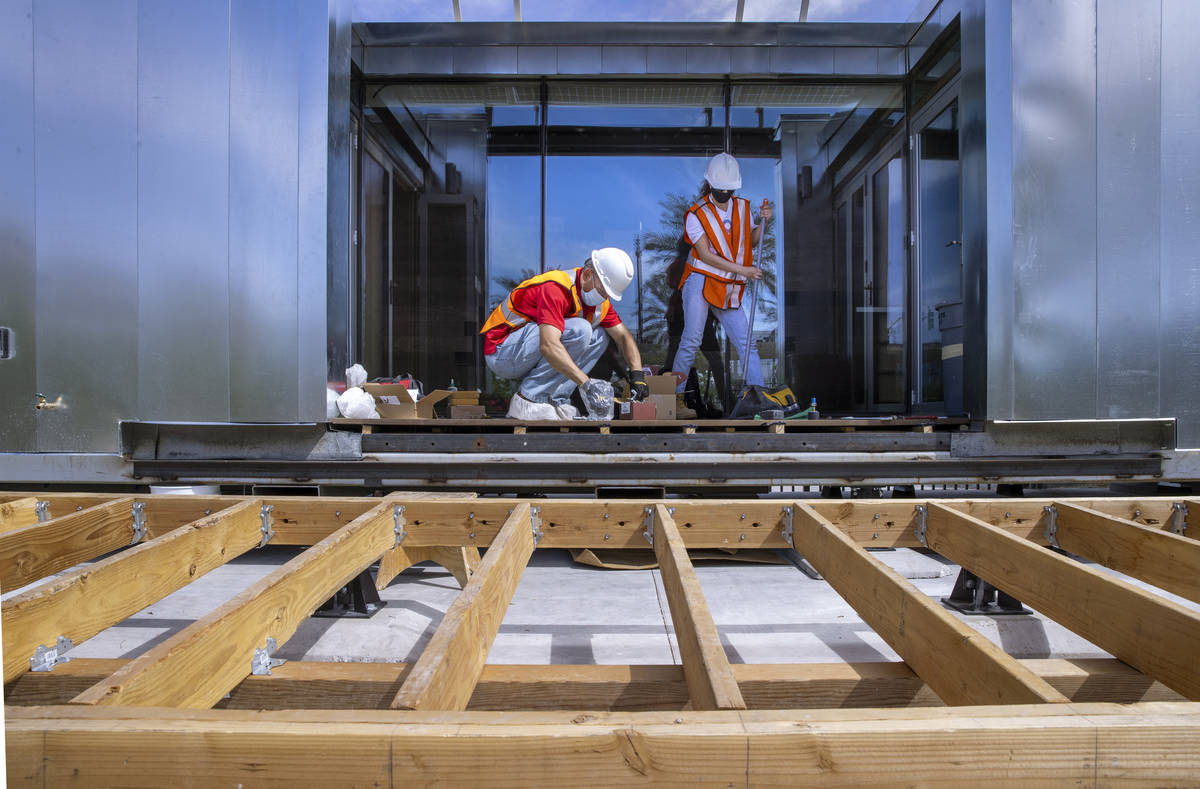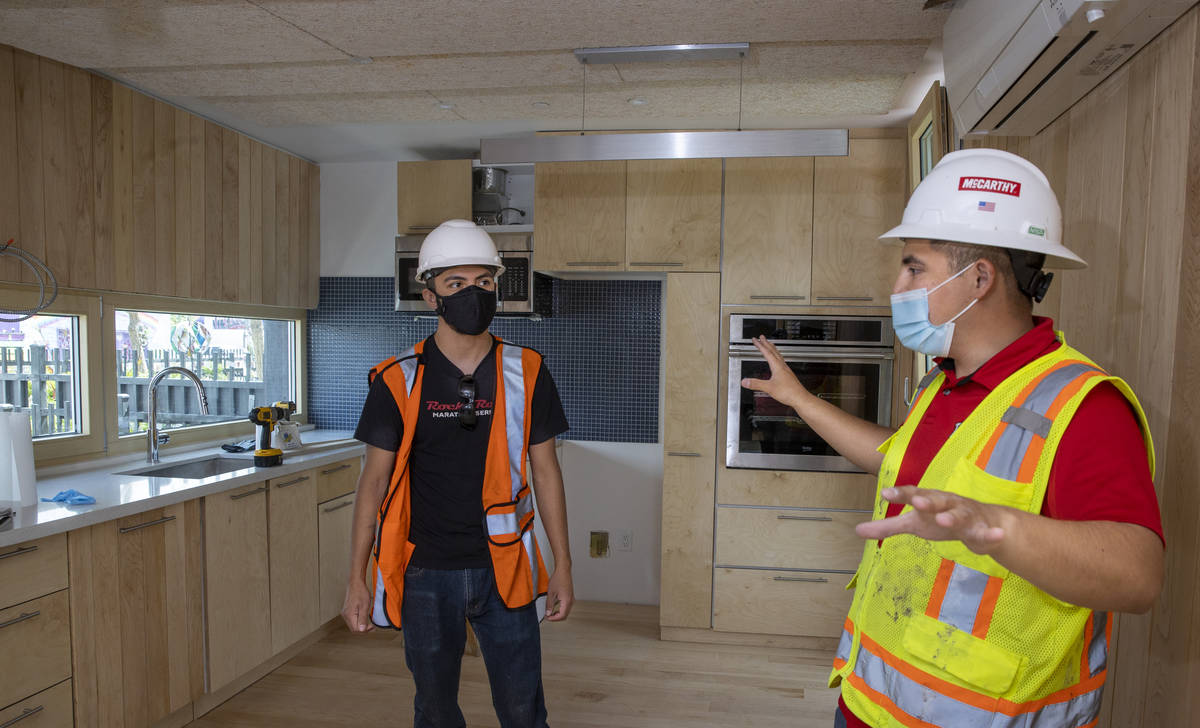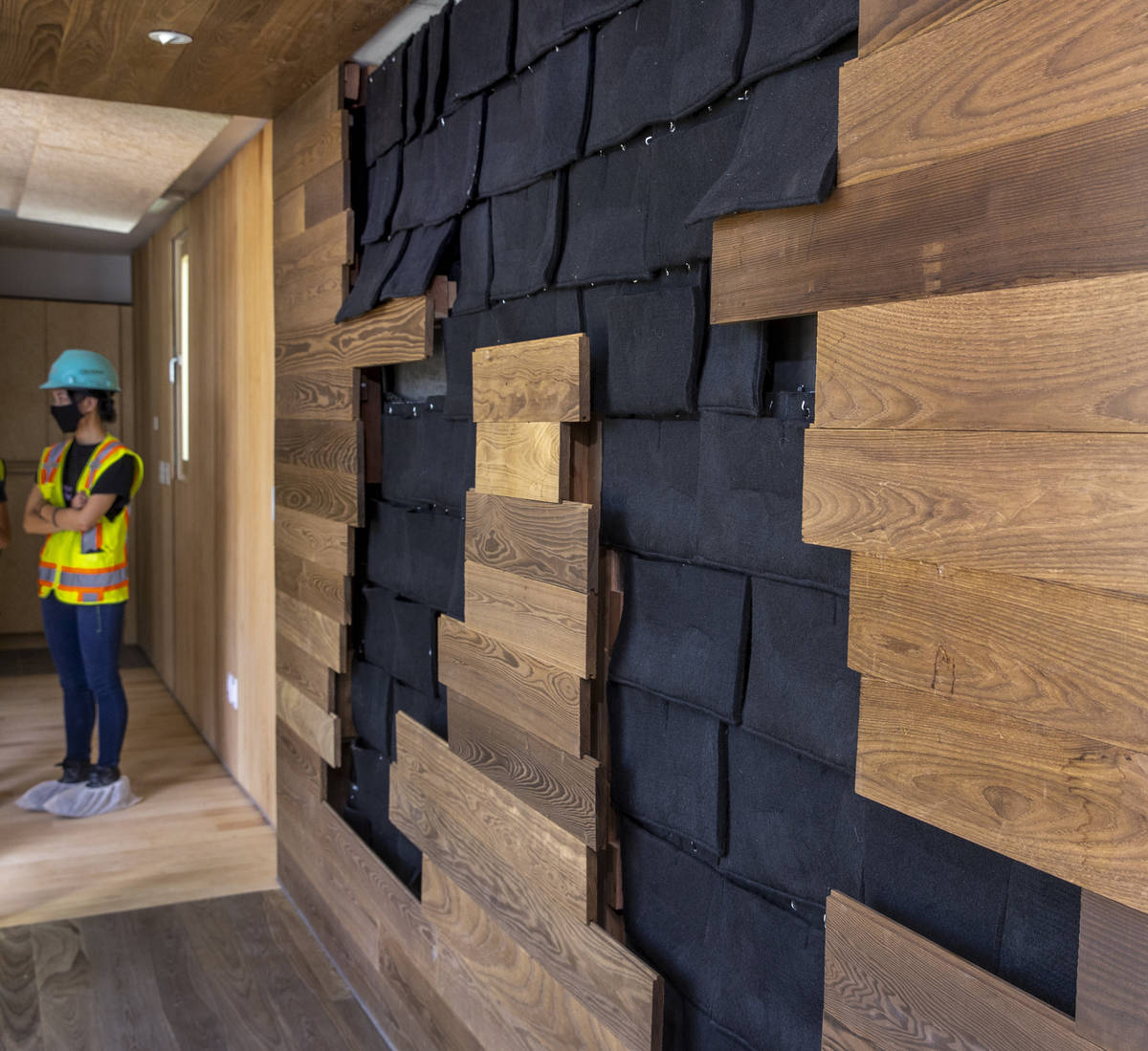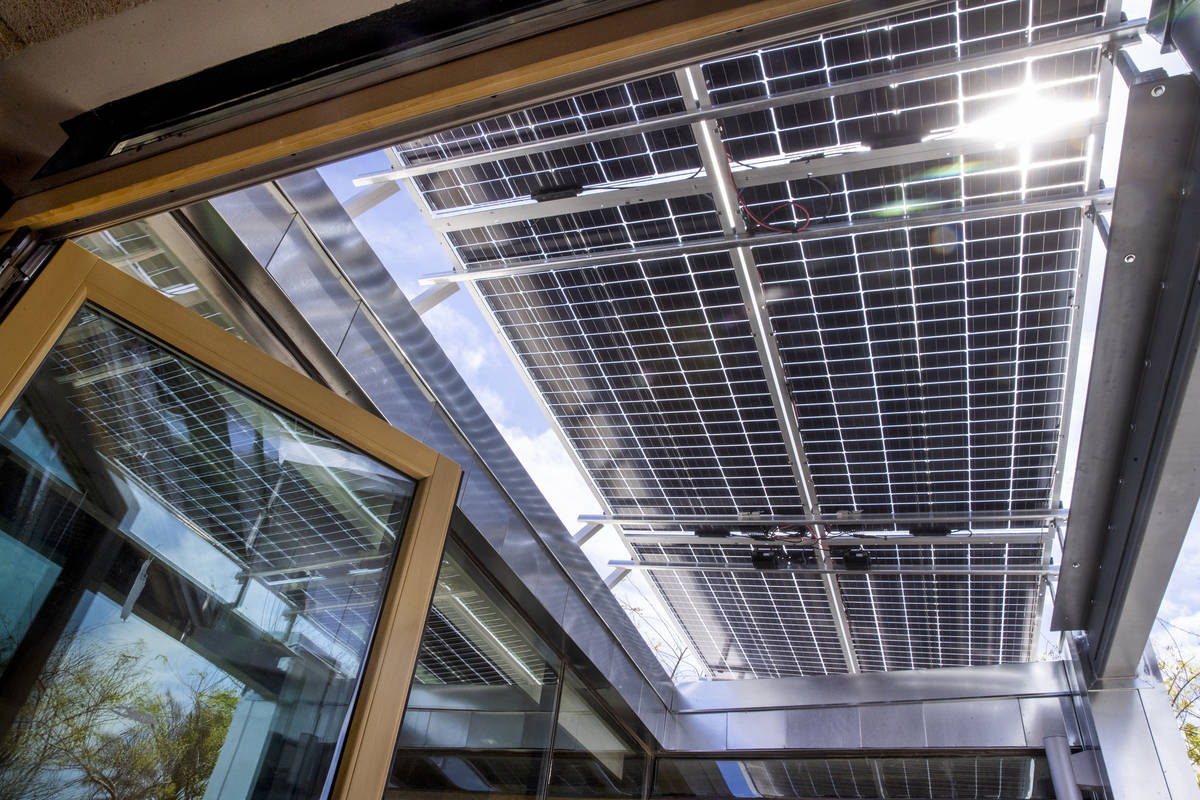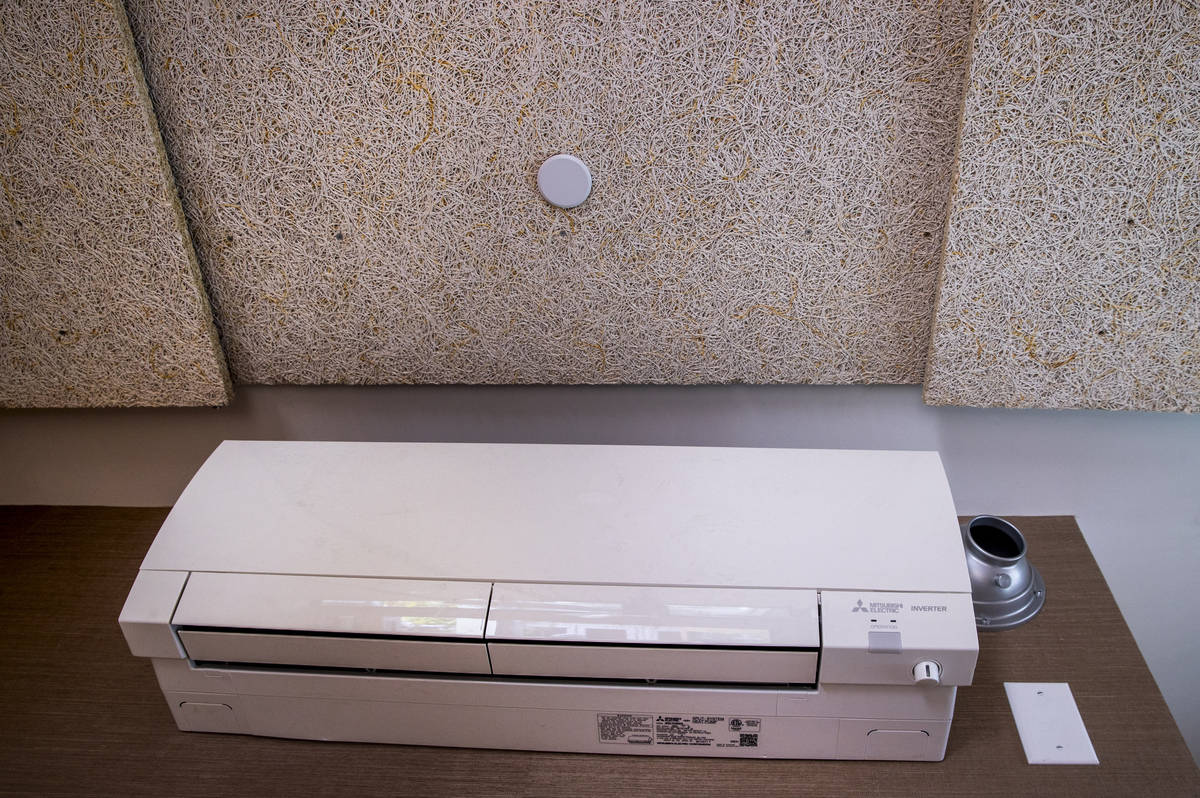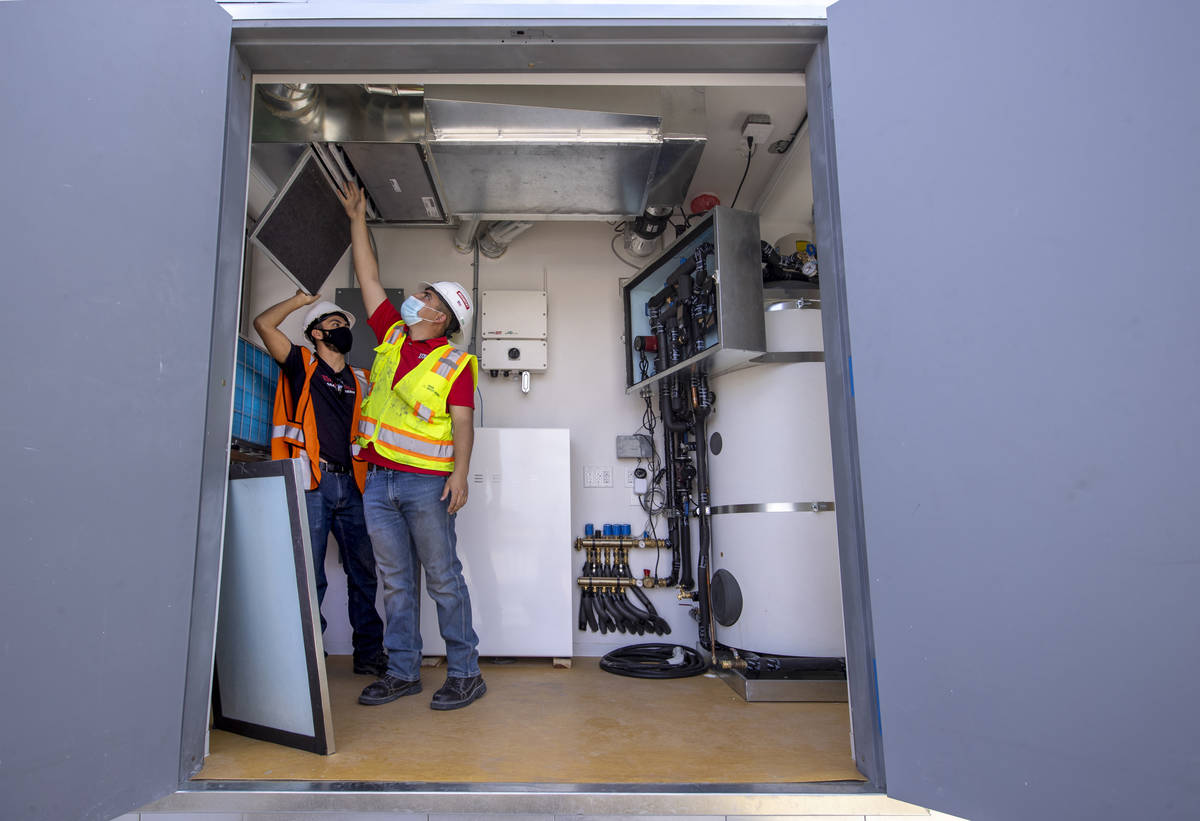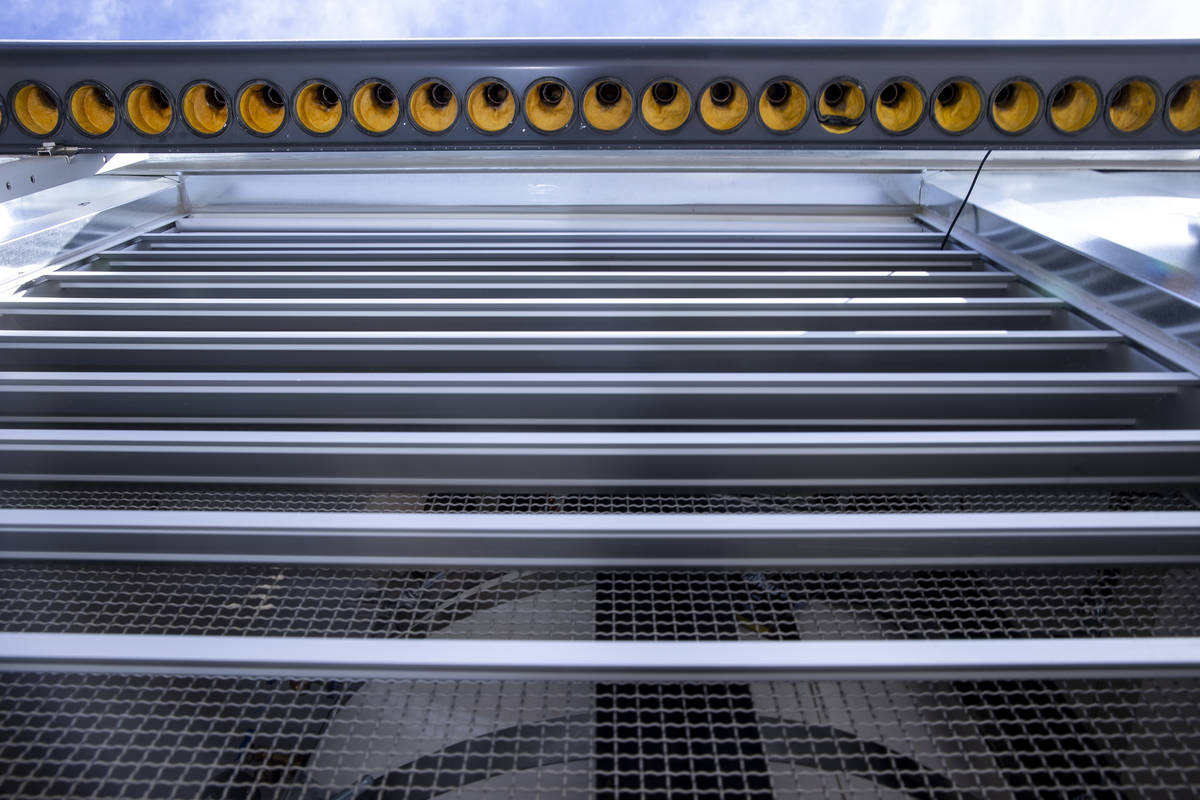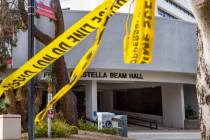Sun and brain power fuse in UNLV students’ solar house for vets
Helping build a small house powered by renewable energy was a life-changing experience for UNLV student Alejandro Munoz.
“The experience is invaluable,” the 20-year-old, who’s working toward a bachelor’s degree in construction management, said of his participation in the U.S. Department of Energy’s 2020 Solar Decathlon Build Challenge. The two-year contest calls for students to design and build a home powered entirely by solar energy.
Thanks in part to the hands-on experience Munoz gained through the extracurricular project, which drew about 50 UNLV students, he landed an internship with a construction company that worked on the new Circa resort in downtown Las Vegas. And he already has a different internship lined up for this summer.
UNLV’s team is among nine finalists competing in the challenge. It’s the third time UNLV has tested its prowess, having also participated in 2013 and 2017.
For this challenge, students built a 628-square-foot house called “Mojave Bloom,” specifically designed for veterans who are suffering from post-traumatic stress disorder or a traumatic brain injury.
Its home, though, is the Storytelling Garden adjacent to the Las Vegas Community Healing Garden in the Arts District, where it will be used as a gathering place for garden volunteers and as a place to store their tools.
The house was transported March 31 from the construction site at project sponsor Xtreme Manufacturing in Henderson to the garden, created in memory of the 60 victims of the Oct. 1, 2017, Route 91 Harvest festival mass shooting.
Grant got project rolling
The UNLV team received a $140,000 grant from the U.S. Department of Energy to help cover costs associated with competing, but couldn’t use the money to build the house. Students instead raised money through donations, materials and in-kind support.
The competition was originally scheduled for summer 2020 on the National Mall in Washington, D.C., but was postponed by nearly a year and is being held virtually instead.
Judges will evaluate homes this week in 10 categories, including energy efficiency and innovation. An overall winner will be announced Sunday, though competing schools already received cash prizes incrementally as they completed different phases of their project.
The students who participated hail from variety of majors, including construction management, architecture and engineering.
The team had to meet different requirements throughout the challenge, including using the house to charge an electric car.
“They want to know our house is actually functional,” Munoz said.
On Friday afternoon, a handful of students were on site putting the finishing touches on the house before the competition.
The rectangular-shaped house’s exterior has galvanized steel siding. There’s a patio and rooftop solar panels. And one wall inside, known as the “green wall,” has black pouches attached that will be filled with aromatic plants.
‘It still amazes me’
Miguel Vazquez, a 23-year-old team member who’s pursuing a bachelor’s degree in electrical engineering, said the project has been a learning experience.
“We have to learn on the go,” he said, adding that he’s impressed with the finished product. “It still amazes me how students built this.”
Ryan Manthei, 30, a master’s degree architecture student, is the project leader. Students had to design the house with a specific type of occupant in mind, he said, and veterans in Las Vegas are “kind of an underserved population.”
Manthei said it’s a research-based design, meaning students looked to scientific research to inform decisions and understand how someone with PTSD would respond to different things.
He said loud noises can be a PTSD trigger, for example, so students took steps in the design to mitigate that. The inside of the house, he added, has a calm feel and that’s promoted by the use of natural materials.
The project took longer than anticipated because the pandemic required limiting the number of students on site at any given time, Manthei said.
The pandemic also impacted the ability to get certain materials. Doors, for example, were on back order from Germany and took an extra six months to come in, he said.
Students also had to stop construction for a while and some students who were originally participating have since graduated. But the team has managed to overcome those challenges.
“I think it’s really good for us students because if we can do it in a global pandemic,” Manthei said, “we can do it during normal times.”
Contact Julie Wootton-Greener at jgreener@reviewjournal.com or 702-387-2921. Follow @julieswootton on Twitter.



